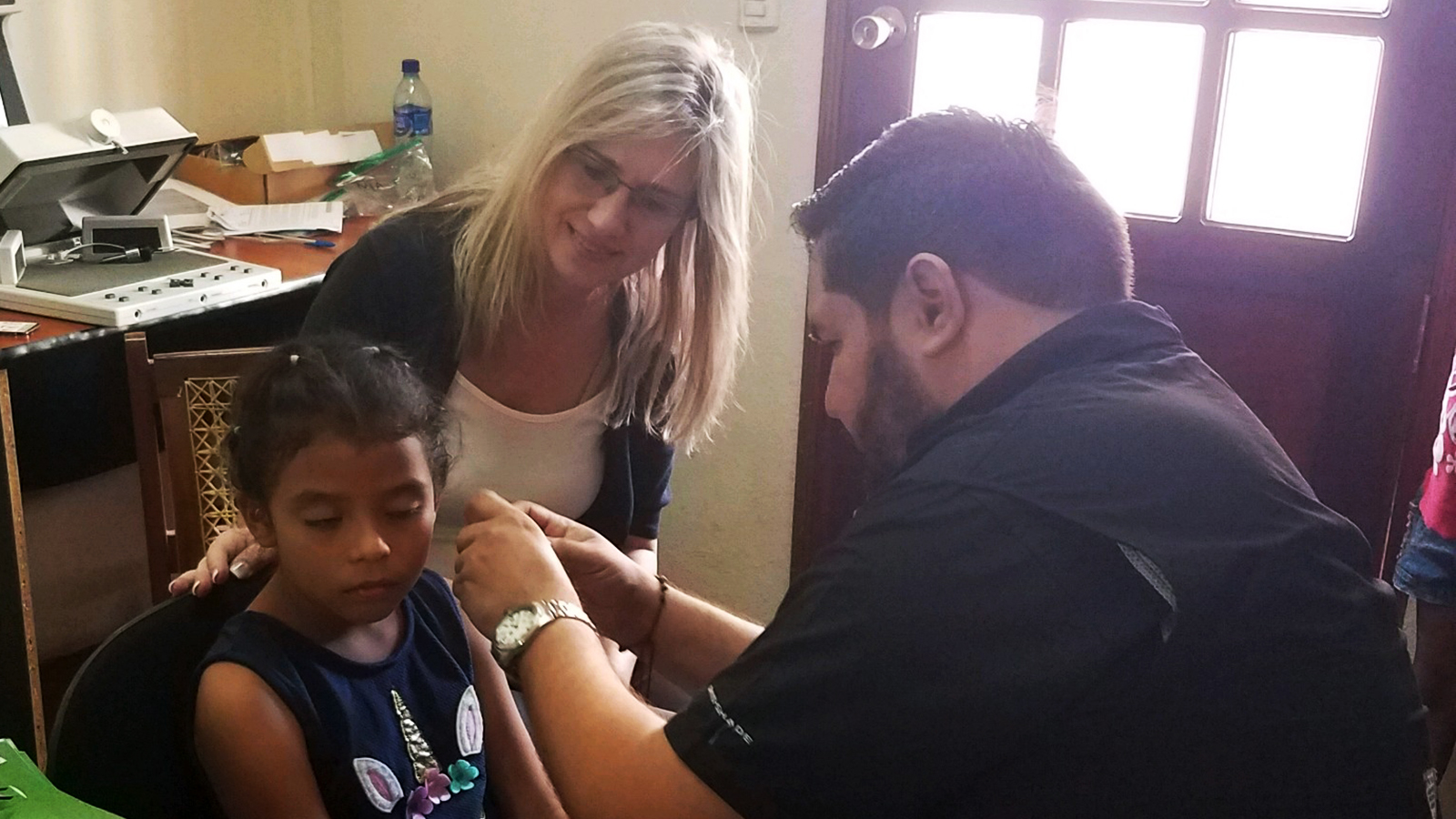
One full year had passed since Stacie Ray was allowed to visit Nicaragua to see in person the status of the humanitarian audiology project she and Hannah Ditmars began in 2016. When Ray returned to the country in early March, she was excited by the evident progress since the Huskers’ last visit.
Ray, associate professor of practice of special education and communication disorders, and Ditmars, assistant professor of practice in the same department, led a total of 10 students from the University of Nebraska-Lincoln’s Doctor of Audiology program on summer study abroad trips to Nicaragua in 2016 and 2017. The two faculty also returned for follow-up care in the winters of 2017 and 2018. They were forced to cancel the annual study abroad trip last July due to political tensions in Nicaragua, but made certain the project continued moving forward.
During the first two years of the partnership, Ray and Ditmars established a relationship with the National Autonomous University of Nicaragua (UNAN) in León and began training faculty members as audiology technicians. In between visits, the Nebraska faculty work with the UNAN faculty to ensure continuity of care for patients with hearing loss.
“The most amazing part of this trip was seeing the significant progression of skills in the faculty that we are training,” Ray said. “Knowing that we are training individuals who will likely become the first faculty in Nicaragua to teach audiology technicians is very exciting, and a little surreal.”
Ray and Ditmars began serving Nicaragua with a focus on creating a sustainable humanitarian audiology project. It was important not only to provide hearing healthcare themselves, but also to train technicians in the country to provide follow-up care during the other 49 weeks of the year.
During her most recent trip, Ray provided further training in diagnostic testing and amplifications for three UNAN faculty members. She also assisted with setting up an audiometer for clinical use at UNAN. In addition, Ray and the UNAN faculty saw 120 patients and fit 74 hearing aids in the week she spent with them.
“The most challenging part of the trip was trying to figure out how to get all of the equipment and supplies into the country,” Ray said. “Our plan had been to travel with eight students and two faculty members, but ended up with only myself being able to travel.”
Ray was the lone Husker in Nicaragua in March, but the preparations for the trip were a team effort involving her, Ditmars and eight Husker audiology students. The group created an extensive supply list, which included more than 4,000 hearing aid batteries alone. They also created Spanish versions of three medical forms, checked and verified more than 100 hearing aids, prepared hundreds of earmolds, and gathered and packed supplies and equipment. Audiology Systems also helped by providing loaner equipment containing the tools needed to see the patients.
In 2016, Ray and Ditmars also created HearU International, a fund established through the University of Nebraska Foundation, to support the project in Nicaragua. Donations to the fund help cover the cost of supplies and hearing aids. In addition to private donations, the College of Education and Human Sciences has provided support for the project through seed grants. In the three years since HearU International started, the Huskers have seen 576 patients and fit 343 hearing aids in Nicaragua.
“We are extremely grateful for the College of Education and Humans Sciences and the HearU International donors who believe in the work we are doing,” Ray said. “These contributions are making a difference in the second-poorest country in the Western Hemisphere.”
An average pair of hearing aids in the United States costs about $4,600, more than twice the gross national income per capita in Nicaragua. Ray and Ditmars have been able to purchase hearing aids with simple technology at a low cost through the non-profit International Humanitarian Hearing Aid Purchasing Program. They provide each individual in Nicaragua with hearing aids (one for adults and two for children, per World Health Organization guidelines). The cost for providing these services is slightly less than $100 per adult and $200 per child.
Individuals interested in donating to HearU International may visit http://go.unl.edu/hia5, or call Amanda Byleen at 402-458-1192 or Todd Mattox at 402-458-1238 at the University of Nebraska Foundation to contribute to fund number 13709.